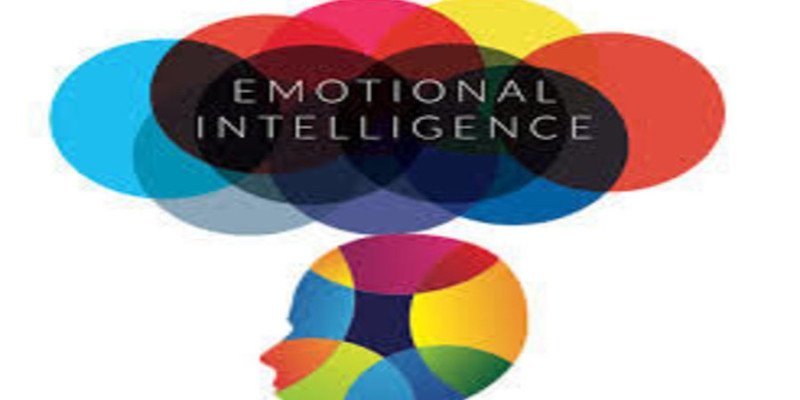Emotional intelligence, often referred to as Emotional Quotient (EQ), has garnered significant attention in recent years due to its crucial role in personal and professional success. Unlike Intelligence Quotient (IQ), which measures cognitive abilities, EQ assesses one’s capacity to understand, manage, and harness emotions effectively.
What is Emotional Quotient (EQ)?
Emotional Quotient, or EQ, is a term coined to describe a person’s ability to recognize, understand, manage, and use their emotions, as well as the emotions of others, in a constructive and adaptive way. It encompasses various facets, including self-awareness, self-regulation, empathy, social skills, and motivation. EQ serves as a crucial tool in navigating the complex world of human interactions, impacting both personal relationships and professional success.
The Components of EQ
Self-Awareness: This is the foundation of emotional intelligence. It involves recognizing and understanding your own emotions, including their causes and effects. Individuals with high self-awareness can pinpoint their emotional states and their impact on thoughts and behavior.
Self-Regulation: Self-regulation is the ability to manage and control one’s emotional responses. It entails maintaining composure in stressful situations, refraining from impulsive reactions, and channeling emotions constructively.
Empathy: Empathy is the capacity to understand and relate to the emotions and perspectives of others. It involves active listening and the ability to offer genuine support and compassion to those in need.
Social Skills: Social skills encompass effective communication, conflict resolution, and the ability to build and maintain positive relationships. People with strong social skills can navigate social situations smoothly and build rapport with ease.
Motivation: Motivation in the context of EQ refers to the drive to set and achieve personal and professional goals. It involves resilience in the face of setbacks and a commitment to personal growth.
The Importance of EQ
Why does emotional intelligence matter? The significance of EQ becomes evident in various aspects of life:
Improved Relationships: Individuals with high EQ tend to have healthier, more fulfilling relationships. They understand the needs and emotions of others, leading to better communication and conflict resolution.
Enhanced Leadership: Effective leaders often possess a high level of emotional intelligence. They can inspire and motivate their teams, build trust, and navigate challenges successfully.
Stress Management: EQ aids in stress reduction. People with strong emotional intelligence can manage their emotions, preventing stress from escalating into more severe mental health issues.
Personal Growth: EQ fosters self-awareness and resilience, enabling individuals to learn from their experiences and continuously improve themselves.
Can EQ Be Improved?
The good news is that emotional intelligence is not a fixed trait; it can be improved with conscious effort and practice. Here are some strategies to enhance your EQ:
Self-Assessment: Start by assessing your current emotional intelligence. Reflect on your strengths and weaknesses in the five EQ components. Self-awareness is the first step toward improvement.
Active Listening: Develop your empathetic skills by actively listening to others. Pay attention to their words, body language, and emotions. Practice understanding their perspectives without judgment.
Manage Stress: Stress can hinder emotional intelligence. Learn stress-management techniques such as mindfulness, deep breathing, and time management to maintain emotional composure.
Seek Feedback: Encourage honest feedback from friends, family, or colleagues about your emotional intelligence. Constructive criticism can help you identify areas for improvement.
Practice Empathy: Put yourself in others’ shoes and try to understand their feelings and perspectives. This can be especially helpful in resolving conflicts and building stronger relationships.
Self-Regulation: Develop self-regulation skills by consciously monitoring your emotions. When you experience strong emotions, take a step back, analyze the situation, and choose a measured response.
Social Skills: Improve your social skills by actively engaging in social situations. Join clubs or groups with shared interests, attend networking events, and practice communication and relationship-building.
Emotional Education: Invest time in learning more about emotions and how they function. Books, courses, and workshops on emotional intelligence can provide valuable insights and techniques.
Set Goals: Establish specific goals for improving your emotional intelligence. Break them down into manageable steps and track your progress regularly.
Seek Professional Help: If you find it challenging to improve your EQ on your own, consider seeking guidance from a therapist or counselor specializing in emotional intelligence.
Conclusion
Emotional intelligence, or EQ, is a critical skill that can significantly impact various aspects of our lives. It is not a fixed trait but can be improved through self-awareness, practice, and a commitment to personal growth. By developing skills in self-awareness, self-regulation, empathy, social skills, and motivation, individuals can enhance their emotional intelligence and, in turn, experience more satisfying relationships, better stress management, and increased personal and professional success. Remember that improving EQ is a journey, and with patience and dedication, anyone can unlock their emotional intelligence potential.

